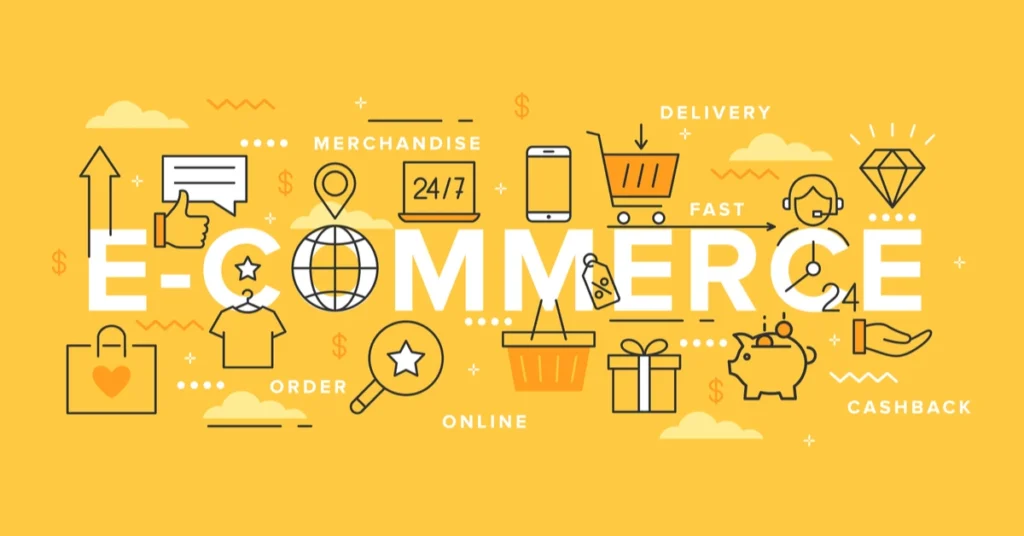What Is eCommerce?
Ecommerce
Ecommerce refers to the buying and selling of goods and services over the internet, including transactions on websites, apps, social media, and online marketplaces. It encompasses online shopping, electronic payments, auctions, and internet banking, all aimed at driving sales using digital platforms and marketing strategies.

E-commerce, short for electronic commerce, refers to the buying and selling of goods and services over the internet. It encompasses all efforts a seller makes to sell directly to consumers, starting from when a potential customer first learns about a product to the purchase and beyond, ideally fostering customer loyalty.
Start Your E-commerce Business
Launching an e-commerce business is easier than ever with numerous tools and platforms available. To get started, think about your business model, products, and how you’ll reach your customers. By 2025, the global e-commerce market is projected to exceed $24 trillion, making it a great time to dive in.
Successful e-commerce businesses often leverage data and best practices, such as targeted marketing and marketing automation, to enhance customer engagement and conversion rates.
E-commerce Business Models
Ecommerce businesses can vary widely in structure, including:
Business-to-Business (B2B): Transactions where one business sells products or services to another.
Business-to-Consumer (B2C): The most common form, where businesses sell directly to consumers.
Consumer-to-Consumer (C2C): Individuals sell goods or services to other individuals, often via online marketplaces.
Consumer-to-Business (C2B): When consumers provide value to businesses, such as selling content or freelance work.
Business-to-Government (B2G): Companies contract with government agencies for goods or services.
Consumer-to-Government (C2G): Individuals make payments to government agencies, such as paying taxes or fines.
Pros and Cons of E-commerce
Pros:
Low Startup Costs: Ecommerce businesses often require less capital than brick-and-mortar stores since there are no real estate or rent costs.
Flexibility: Customers can shop 24/7, and businesses have the freedom to operate from anywhere.
Data Insights: Online stores provide valuable data, helping businesses optimize marketing strategies and customer engagement.
Broader Product Range: Ecommerce businesses can offer a wider selection of products, unconstrained by physical space.
Cons:
Limited Customer Interaction: The lack of face-to-face interaction can make it harder to build relationships with customers.
Shipping Coordination: Businesses must manage logistics to ensure timely product delivery, often to a global audience.
Customer Service: Without in-person support, businesses need strong online customer service systems to resolve issues effectively.
E-commerce Examples
Retail: Selling products directly to consumers.
Wholesale: Selling products in bulk at discounted prices.
Subscription: Offering products or services through recurring payments.
Digital Products: Selling intangible items like software, ebooks, or online courses.
Tips for Getting Started in E-commerce
Do Your Research: Understand your competition and target audience before launching your store.
Choose a Platform: Opt for user-friendly platforms like Magento to start your store, allowing flexibility as your business grows.
Test Everything: Continuously test your website, ads, and customer experience to optimize conversions.
Diversify Marketing: Use inbound marketing strategies and explore additional channels to expand your reach.
Frequently Asked Questions
How do I start an ccommerce business? Starting an e-commerce business involves choosing products, sourcing them, and selecting an e-commerce platform. Once your site is set up, promote your business using digital marketing tactics such as email marketing and social media ads.
Is Amazon e-commerce? Yes, Amazon is the largest ecommerce platform globally, supporting both B2C and B2B transactions.
What are the benefits of e-commerce over brick-and-mortar stores? E-commerce offers lower startup costs, flexibility for both businesses and customers, and the ability to easily track and improve marketing efforts using analytics tools.



